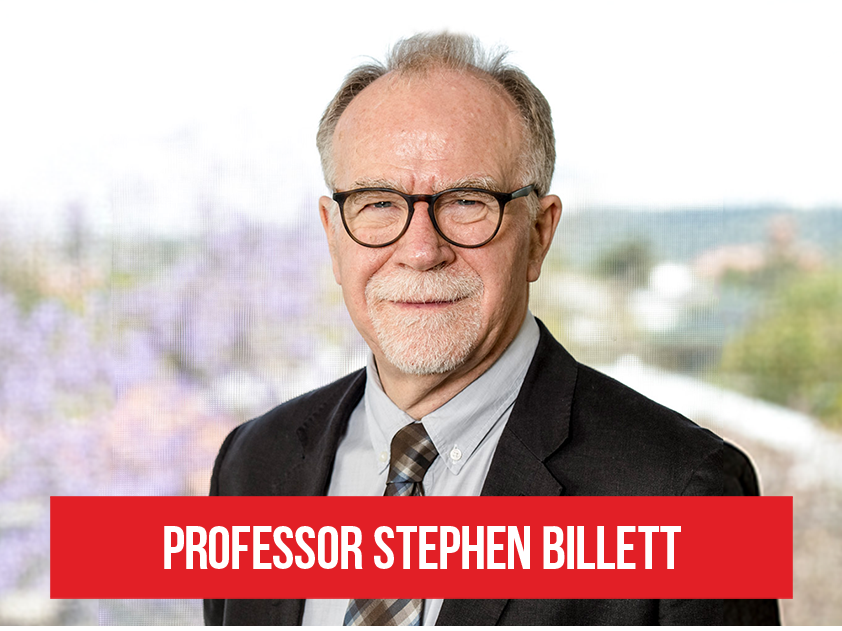A new Griffith University study found that workers without “lifelong learning” skills may be at risk of unemployment.
The study. led by researcher Professor Stephen Billett from Griffith Institute for Educational Research, tracked the lives of working-age Australians to explore how adults learn throughout their working lives.
Focusing on “lifelong education” (classroom-based learning) and “lifelong learning” (continuous learning throughout life), the results found individuals without “broad experiences” severely lacked “depth”, putting them at risk of unemployment in case of redundancy.
Professor Billett prompted an urgent need to reevaluate how working-aged adults continue to learn in the workplace – particularly those transitioning from youth to adulthood.

“Employability is three things – the ability to get a job, the ability to be continually effective in that job and the ability to evolve,” he told EducationDaily.
“These days, just having classroom-type experiences is insufficient for developing the kinds of knowledge that you need to be employable”.
Warning many Australians are ill-equipped to engage in continual lifelong learning, Professor Billett says workers desperately need more support to stay effective in the workplace.
“It’s unlikely that people will be able to simply tread water because the current is working against students. So workers have to continually learn to almost say afloat,” he says.
“There is now an ongoing demand for working age adults to continually learn, to respond to new challenges, to meet their enterprise’s needs and to maintain their enterprise’s viability.”
The study of 66 working-age adults during the COVID-19 outbreak saw a desperate need for lifelong education to maintain employability, with some professionals struggling to adapt their careers in case of unemployment.
“In the project, we interviewed workers who had been affected by COVID, including airline pilots. These people were kings of the skies in February, 2020, and then two weeks later were unemployable,” he says.
“Without the ability to adapt to the rapidly changing job climate, some of them went through hideous experiences of trying to find work and simply put food on the table.”
Learning in the workplace
According to Professor Billett, workplaces need to take a more collaborative and holistic approach to accommodate the educative experiences of working-age adults and foster richer learning experiences.
“Most working-age adults have family responsibilities, they have work responsibilities, they often have community responsibilities, and then they may study,” he said.
“We need to find models that are not just based upon what you do with adolescents and young adults in the transit from school to working life, but rather models that actually suit the demands of working-age adults”.
To organically grow their skillset, Professor Billett says workplaces need to provide employees with opportunities to innovate and expand their knowledge beyond the scope of their current job.
“Workplaces should be encouraging workers to innovate and problem solve on the job, because when you innovate, you actually learn,” he said
“The adoptions of programs like Teams, Zoom and Skype are perfect examples. Had COVID not forced innovation, it’s unlikely that large elements of the adult population who now use that technology would’ve ever been pressed into using it.
“We need to keep expanding the boundaries of what we know and not just understand things we’re comfortable, but try and press ourselves further.”
The Professor encouraged workplaces to engage in production and team meetings to share experiences and draw upon expert knowledge to provide learning opportunities.
“Engaging with real-life scenarios provides a meaningful context for learning and transforms these experiences into invaluable opportunities for growth and knowledge enrichment.”
Re-engaging in education
With the classroom being a distant memory for many working Australians, Professor Billett says workers re-engaging with education should set clear, realistic goals.
“Re-engaging with education requires workers to be clear about what they want to do. The first step should be to find advice from someone in the field on how they achieve whatever career move or development they want,” he says. “More importantly, though, it’s vital people find opportunities for practising their newfound skills. Generally speaking, a course on its own won’t be sufficient for developing the skills needed to advance.
As employers continue to prioritise younger people, Professor Billett says this working experience was vital for older workers looking to make a career change.








